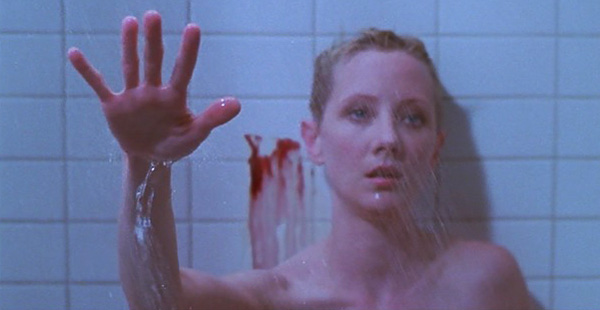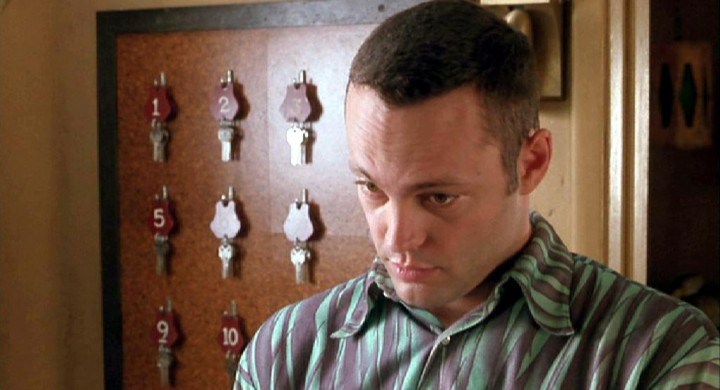
It’s hard to believe that Gus Van Sant’s Pscyho remake turns 20 years old this year, almost as hard as it is to believe that Gus Van Sant decided to use the clout that he’d earned after his Oscar nomination for Good Will Hunting to remake Psycho frame-by-frame. The movie, upon its release, was largely derided by critics (it sits at 37 percent on Rotten Tomatoes) and was a box-office bomb, earning $21 million in the United States on a whopping $60 million budget. I remember when it was released that a lot of moviegoers treated it as a joke. Why would anyone choose to remake a classic film (in color) without even trying to put their own twist on it? What was the point of remaking a classic film shot-by-shot?
As it turns out, the Psycho remake actually did start out as a joke, and Van Sant knew that the film would be obliterated by both moviegoers and critics, but he didn’t care (at least until it was released). He saw the entire endeavor as a massive $60 million experiment, as he explained to Marc Maron during the WTF Podcast this week.
The idea for the remake actually came in response to the trend in the 90s for making sequels, or for remaking films or turning TV shows into movies and vice versa. “The joke about the executive was that they’d rather make a sequel than they would an original piece,” Van Sant told Maron. Executives at the time were searching for ways to continue stories that were already known in the public and they didn’t yet know how to do it (this was obviously before they discovered the value of comics). After Van Sant found some critical success with Drugstore Cowboy, he found that he suddenly had an audience with these studio executives. Studios started offering Van Sant access to their libraries of old movies to remake or scripts that had been unproduced.
“They did The Flintstones as a movie, they did The Brady Bunch as a movie,” Van Sant told Maron. “And I said, ‘What you guys haven’t done is try to take a hit and remake it exactly rather than remake it and put another spin on it.’ I’d never seen that done yet. The whole thing seemed experimental to me, so I thought, ‘Why not?’ And they laughed. They thought it was silly. Ridiculous. Absurd.”
However, Van Sant continued to bring up the idea with various studios, eventually locking in on Pyscho, but studio after studio laughed at him.
What happened, however, is that Van Sant made Good Will Hunting, which did very well at the box office and fetched Van Sant an Oscar nomination for best director. At the time, it was the practice (and it still may be) to lock in directors right before the Oscars on new projects, so they could say — if that director won — that they had that director’s next project lined up. “So, they were trying to make a deal with me, and I my agent was saying, ‘Universal really wants to do a deal with you. Have you got anything for them?’ And I said, ‘Oh yeah! Tell them Psycho frame-by-frame, new cast, in color.'”

Van Sant implied that it was something of a throwaway idea that he didn’t expect anyone to take him up on. However, Universal thought it was a “fantastic idea.” Van Sant, however, still had to decide if he wanted to go through with the movie. He made that decision after talking to Danny Elfman about doing the score. “They’ll kill you if you make this,” Elfman told him. “And I was like, ‘Who will kill me?'” And Elfman said, “Everyone.”
However, Van Sant saw it as an “experiment,” and said, “It doesn’t matter if they kill me … but then later, when they did [kill him], it hurt,” Van Sant told Maron.
“So it didn’t work,” Van Sant continued to explain to Maron. “But the idea was whether you could remake something, and it would repeat the box office. That was the sort of weird science experiment.”
Alas, the science experiment failed. The film made $21 million, which was less than what the original Psycho made in 1960 dollars ($32 million), and much less once inflation was factored in (the 1960 Psycho made $390 million in today’s dollars).
Surely, however, Van Sant learned something from the experience, right?
“Not really,” Van Sant told Maron. “In repeating it, it didn’t bring any new insights.”
The science experiment, however, must have worked in one way: The studios learned that remaking a classic frame-by-frame would not be a successful strategy, and in the 20 years since, they haven’t endeavored to try it again.
Van Sant’s Don’t Worry, He Won’t Get Far on Foot starring Joaquin Phoenix is currently in theaters.
(Via: WTF with Marc Maron)






